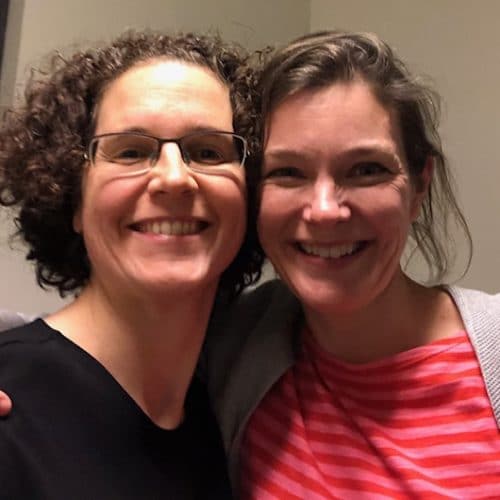After decades of separate development, the Britten–Pears Foundation and Snape Maltings are about to merge, creating a single central repository of the Britten legacy.
The new organisation will be co-chaired by Snape Maltings Chair, Sir Simon Robey and Britten–Pears Foundation Chair, Sir Vernon Ellis. Roger Wright, Chief Executive of Snape Maltings, will become the Chief Executive of the Benjamin Britten Foundation and Sarah Bardwell, Chief Executive of the Britten–Pears Foundation will become the Executive Director of the Benjamin Britten Foundation.
They say: ‘It was Britten and Pears’ intention to have one foundation and by merging we will create new possibilities and opportunities to promote their legacies. Bringing together our activities allows us
to expand the creative campus across both sites and to move forwards as a unified organisation which will continue to champion the heritage and archive at The Red House and to support performance and talent development at Snape Maltings.’

Melissa Kleinbart, Chair of the Players’ Committee of the SF Symphony has let it be known that when the SF Symphony arrives to perform in Chicago on March 26th ‘we plan to join their picket line and stand with them in solidarity’.
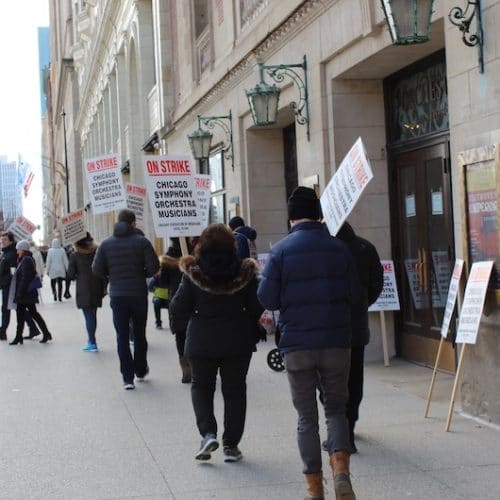
We hear from friends in the Covent Garden audience that he sang in Forza, opposite Netrebko.

Let us know if you were there.
In the new issue of the Spectator, I have written – with reference to Daniel Barenboim – about the way conductors have evolved from tyrants to man-managers.
Barenboim’s generation replaced dictatorial terror with mental pressure. The genial Claudio Abbado would say nothing in rehearsal but, as he left, would drop a name in the manager’s ear and a certain musician would be de-rostered for his next visit. Zubin Mehta, unfailingly agreeable and workmanlike, used orchestra managers as his hatchet men.
Read on here.
The Royal Stockholm Philharmonic has decided to mark Beethoven year with all nine symphonies, each paired with a work by a female composer.
The beneficiaries will be Ethel Smyth, Amy Beach, Dora Pejacevic, Louise Farrenc, all 19th century; Kaija Saariaho and Sally Beamish of the 20th; and two youngsters, Britta Byström and Lotta Wennäkoski.
They are calling the series Ladies versus Beethoven (LvB).
Geddit?

Professor Julian Lloyd Webber, Principal of the Royal Birmingham Conservatoire, has struck up a partnership with Naxos Records which will give debut recordings to six outstanding students.
The students are five pianists – Daniel Lebhardt, Roman Kosyakov, Pascal Pascaleff, Andrey Ivanov and Domonkos Csabay – and violist Yue Yu. Among the pieces they will record are world premiere recordings of music by Holst, Britten and York Bowen.
Julian Lloyd Webber said: ‘I am delighted that Royal Birmingham Conservatoire is able to offer our talented students this extraordinary opportunity to record for one of the world’s leading record labels at the very start of their careers. I am certain that they will make the most of this unprecedented agreement.’
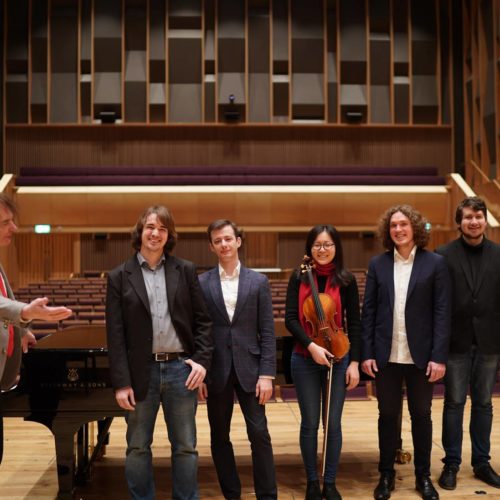
From ACT Records and Naxos Sweden:
In February 2019 the Swedish Culture Council “Kulturrådet” released its’ funding plans for the current year. According to the Swedish Jazz Association, these plans mean a disastrous decision for independent jazz presenters in Sweden, many of them operating since decades. Without warning, almost two months into the year, they were informed that they will not receive any government support at all, with their 2019 concert programmes already booked and contracted way in advance.
Gunno Sandahl, chairman of Swedish Jazz states on www.svenskjazz.se:“The actions of the Culture Council are devastating to the development of the jazz clubs and very irresponsible, as we fear that most of the 13 associations that are now without support will not survive. Moreover, there is also a great risk, that operators of the venues concerned, who mostly work on a voluntary basis, will now be personally held responsible for agreements that cannot be fulfilled.”
Being among the most important presenter of Swedish jazz and home of many Swedish jazz musicians, it is an important concern for ACT and Naxos Sweden to point out these dramatic developments to the public. These cuts shouldn’t have been made. They have an immediate, immensely negative effect on working and touring artists, who are already struggling with the music business undergoing massive changes, especially in Scandinavia. The national jazz scene in Sweden needs support from public funds to be active and vibrant. Jazz clubs all over the country are being managed by small non-profit associations. There is an acute danger that many of them will be forced to close down without this support. Therefore we urge Kulturrådet to reconsider their decision, and increase its’ funding instead of cutting it down.

Seattle Opera Board has named Christina Scheppelmann as it next General Director, starting August 2019.
She succeeds Aidan Lang, who is moving to Welsh National Opera. Christina presently heads the Liceu in Barcelona.
Here’s the official version:
Born in Germany and fluent in five languages, Scheppelmann is the current artistic leader of the Gran Teatre del Liceu, Barcelona’s 172-year-old company that annually produces more than 130 performances in opera, classical music concerts, and dance. Previously, Scheppelmann was the first Director General of the Royal Opera House Muscat (Oman), the first theater of its kind in the Gulf Region. Her roles have also included Director of Artistic Operations at Washington National Opera, where she created the American Opera Initiative to provide a forum for emerging composers and librettists. Before that, she served as artistic administrator at San Francisco Opera where she helped launch two major world premieres: Jake Heggie’s Dead Man Walking (2000) and André Previn’s A Streetcar Named Desire (1995).
On a personal note, Christina Scheppelmann lived in the US for 19 years previously and is looking forward to returning to the Seattle area, where her wife, Beth, is from. Scheppelmann is also a long-time fan of Seattle Opera and has attended performances here since the ‘90s, including the Ring cycle. As a first order of business, she’s looking forward to listening: getting to know the Seattle Opera family, meeting our opera community, and learning more about the history and culture of Puget Sound (and in her spare time, kayaking and playing golf!).
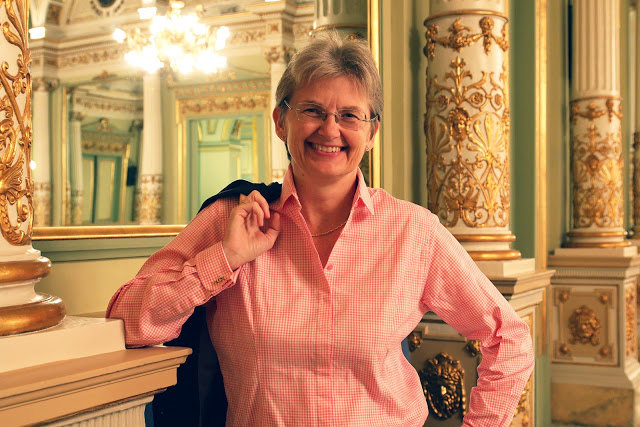
Message from Manchester:
The Hallé is pleased to announce the launch of an international conductors competition with Siemens AG, a global technology powerhouse that has stood for engineering excellence, innovation, quality and reliability for more than 170 years. Commencing on Thursday 20th February 2020, the competition will take place over three days, with the winner being announced on the evening of Saturday 22nd February 2020.
The inaugural Siemens Hallé International Conductors Competition will recognise the talents of one emerging conductor with a two-year engagement as Assistant Conductor for the Hallé, during which they will develop their skills under the mentorship of the Hallé’s Music Director Sir Mark Elder CH CBE. The position of Hallé Assistant Conductor is a prestigious role for talented young conductors, having previously been held by Edward Gardner, Andrew Gourlay, Ewa Strusińska and Jamie Phillips over the past 17 years. In addition to leading the Hallé Youth Orchestra during their tenure, the winning conductor will receive a cash prize of £15,000 and the opportunity to establish themselves on the world stage through guest conducting appearances.
The Siemens Hallé International Conductors Competition builds upon a remarkable partnership between the Hallé and Siemens that has been developed over the last two decades. Creating links between engineering and music, Siemens and the Hallé have not only brought classical music to Manchester audiences, they have collaborated on delivering a variety of education and community outreach projects that engage children and support communities throughout the North of England.
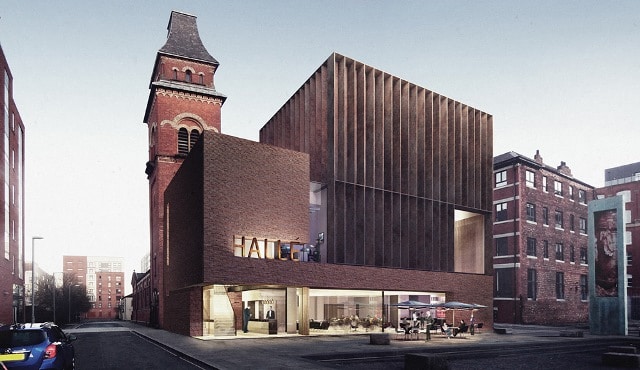
It has been announced that Gabriela Montero, indefatigable campaigner against the Venezuela regime, will play her own concerto at Carnegie Hall on June 30.
Gabi will be accompanied by Carlos Miguel Prieto and NYO2, an ensemble of young American musicians.

John Georgiadis, former leader (concertmaster) of the London Symphony Orchestra, has just brought out a book on the great and not-so-good conductors with whom he worked. John was not a fan of Andrew Preview.
Here’s an extract, exclusive to Slipped Disc:
“What?” This word echoed around the room in utter disbelief, emanating from 80 or 90 incredulous LSO musicians who had just heard from their Chairman, Principal Bass player Stuart Knussen, who would be the new Principal Conductor. Knussen had just delivered a lengthy monologue explaining to us all why a dozen or more other conductors could not, for one reason or another, accept the post. One by one the names had been read out, something along the lines of: Bernstein, Solti, Giulini, Haitink, Davis, etc., etc., with us all either breathing sighs of relief or groans of disappointment, depending on who you personally favoured. But then Knussen said, “However, it is with great pleasure that I can tell you that André Previn has accepted the position”.
After the initial utterances of disbelief followed by a stunned silence I think I was the first to speak up, “I greet this news with utter dismay!” Others joined in with similar sentiments which must have severely shaken the confidence of the board who tried to raise morale by suggesting that it would be up to the members to help and guide Mr. Previn in order to maintain artistic standards. They pointed out all his good points, in particular his commercial value as it seemed that there might be a lot of interest in him from recording companies and television. But with the LSO members largely unimpressed the meeting came to a demoralised end…..
.….The most serious musical calamity that we experienced under his baton was in his early days with us and happened in Columbus, Ohio. It was the initial concert of our first US tour with him and featured that wonderful old warhorse Beethoven’s 5th. During rehearsals, when Previn was completely relaxed, instinct would have helped him give just the right amount of weight to that troublesome starting beat so that there would have been no doubt in the orchestra’s mind where to begin.
As we sat there with mixed anticipation, André, determined to impress on his home soil, stood in front of us with something akin to a John Wayne swagger. Instead of the careful upbeat that is so necessary for this problematic start, we got a gesture resembling the quick-drawing of two six-gun revolvers, as his arms rushed from his hips to mid air with great impact. Astonished at this unexpected violence of movement, the orchestra had to make an instant decision as to whether this was an upbeat or the downbeat. And so it did! Unfortunately, it was a split decision – about 50-50, I’d say – with my side of the orchestra opting for it as an upbeat and deciding to wait a further beat before playing. You can therefore imagine how astonished and shattered we were to hear our colleagues opposite start up immediately! Despite the shock of hearing the piece start without us, we were so committed to our own version of the events that we felt compelled to stand by our judgment, and so made as forceful an entrance as possible, but one bar later than them!

John’s book, Bow to Baton, is available from today on Amazon here.
From our diarist Anthea Kreston, soon to leave the Artemis Quartet:
I guess this has been perfect. I guess it was the right time in my life, the right time for my family, an exotic enough location, and challenging enough. I guess it was the right amount of time to do it, and I suppose I got much more out of it than I had expected (my phone has a section where I jot down a list of potential (and usually unrealistic) goals, and so many of them have been accomplished, it’s really rather silly), and I also think if I had kept going, my family, my health, and my spark would have suffered. These days, with the touring and uneven schedules, I feel like I am in a perennial fog – it reminds me of my 20’s, when last night’s hangover would transform, by mid-afternoon, into kind-of a calm lethargy, and nothing seemed to really jump forward – I was just spinning the wheels that I had so diligently sweated over since I was 2 and a half years old. I am not a natural wheel-spinner. I want to go places, stay places, dig in and fly.
I still don’t know where and what we will be doing next year – this contributes to my fog. But I am working hard preparing for auditions, following up on old contacts, and building on a new momentum that has sprung up, surprisingly, between the small cracks in my seemingly over-stuffed life. New management, new groups, concerto appearances, recordings, it’s all a big sloppy mess, and that’s my speciality.
The pace is fast – it’s odd what a difference 3.5 years makes. I have been to many of these concert halls 3 times now – I know the hotels, the back-stage and the restaurants (or room service menus). My routine – always pick up fruit if you pass a fruit stand, grab bread and cheese from the breakfast buffet, FaceTime with family when they get back from school – my daily packing and practicing is down to a science. My performances – I don’t know from the outside, but inside I feel confident, calm, communicative, flexible and energized.
A funny thing – terrorism. This has also become integrated, normalized. I suppose the same as Americans and living with the constant fear of home-grown single-person shooter terrorism. Two days ago, there was a terrorist incident in Utrecht, and as I took the train there yesterday, with concerned messages coming from family and friends, it was as if nothing out of the ordinary had happened. I checked my phone, sent them a message “they got the guy” and continued on my way. I have been close enough to a handful of devastating terrorist attacks these past 3.5 years, that somehow it doesn’t even phase me anymore. I know it isn’t right to feel this way. But it is truly how it feels.
Last night Janine Jansen came to our quartet concert. That was very cool. Everyone on stage was puffed up, like my pet love-bird Aphrodite used to get when a new person came to meet her. Twice the size as a regular bird – colors resplendent and eyes sparkling. She came backstage at intermission (and after). I was really star-struck and was hiding in my dressing room. I finally came out, greeted our Dutch manager, and shook her hand. It was a nice, soft hand – she is quite delicate – surprisingly delicate considering what a huge and magical presence she has. I went back to my dressing room, and was texting with an old student who started to chide, then scold me – “get out there, Anthea, and ask for a selfie!!!!”. So I did. I got my Classical Music Nerd on, and it was really fun.
Tomorrow I start my “Inside Music” tour in Berlin, and some people will continue on with me for my last European Artemis concert in the present configuration, in Hamburg at the Elbphilharmonie. Then it’s off for the USA tour, and the final concerts with Artemis – sextets on viola! C-String, here I come!
